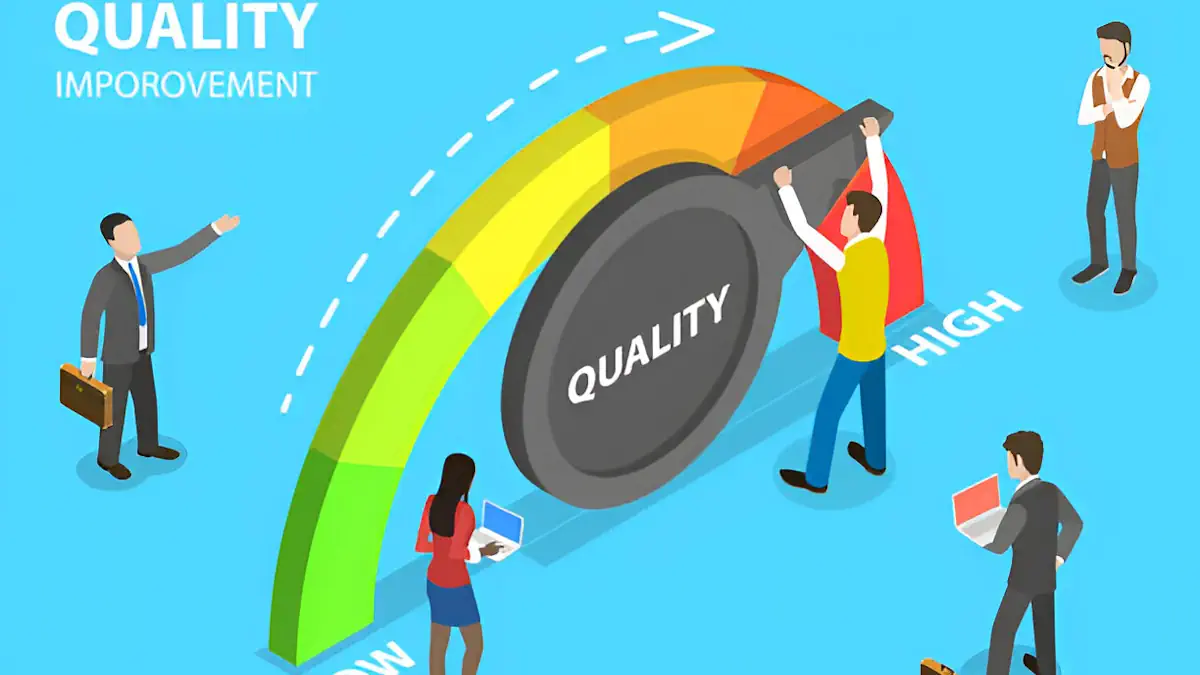Table of contents
- The Importance of Self Improvement in Productivity
- Start Your Day With Clear Goals
- Eliminate Digital Distractions
- Prioritize Self-Improvement Through Learning
- Practice the Pomodoro Technique
- Use the Two-Minute Rule for Small Tasks
- Schedule Regular Breaks to Recharge
- Declutter Your Workspace
- Develop Morning and Evening Routines
- Embrace Self Improvement Through Accountability
- FAQs
- Conclusion
Boosting productivity isn’t only about working harder; it’s about working smarter. If you’ve ever ended a day feeling that your time slipped away, you’re not alone. Many of us struggle with maintaining consistent productivity, especially in today’s fast-paced world. Adopting effective productivity and time management techniques will allow you to reach goals quicker, manage stress, and carve out time for self improvement.
In this article, we’ll explore ten practical tips that can revolutionize the way you work and help you achieve self improvement in both your personal and professional life. These proven methods offer sustainable approaches to productivity, helping you focus, manage distractions, and, ultimately, lead a more fulfilling life.
The Importance of Self Improvement in Productivity
Self improvement and productivity are deeply connected. When you work on personal development, you cultivate discipline, focus, and resilience. These qualities boost productivity by helping you set realistic goals, manage stress, and overcome distractions. Embracing self improvement can lead to significant changes in how you approach work and life.
Taking small, intentional steps daily toward self improvement will ultimately make your productivity habits stick. The goal is to create a productivity system that works uniquely for you, aligning with your strengths and long-term aspirations.
Start Your Day With Clear Goals
Setting clear goals each day allows you to focus on what’s important and prevents unnecessary distractions. Goal-setting aligns your mind with your tasks and helps you prioritize, making it essential for anyone seeking self improvement. To get started:
- Identify three major tasks for the day.
- Break down large projects into smaller, manageable tasks.
- Write your goals in a physical or digital planner.
When you know what needs to be done, you create a roadmap for your day. As you complete each task, you’ll gain a sense of accomplishment, motivating you to keep going.
Leverage the Power of Time Blocking
Time blocking involves scheduling specific time slots for each task, project, or activity. By structuring your day, you enhance focus and avoid multitasking, one of the biggest productivity killers. Here’s how to use time blocking effectively:
- List tasks you need to accomplish.
- Estimate the time each task requires.
- Block time for each task on your calendar.
This technique helps you see how long tasks actually take, helping you manage expectations and maintain a productive flow. Time blocking also encourages breaks, essential for self improvement by preventing burnout.
Eliminate Digital Distractions
Digital distractions can eat away at your time without you even realizing it. Notifications, emails, and social media are common culprits that interrupt workflow. Reducing these distractions helps you focus, leading to better productivity and self improvement. Here’s a step-by-step approach:
- Turn off non-essential notifications on your devices.
- Set specific times for checking emails and social media.
- Use apps that limit or monitor screen time.
By taking control of your digital environment, you can create a distraction-free zone, allowing for deeper focus and faster task completion.
Prioritize Self-Improvement Through Learning
Continuous learning is a powerful driver for productivity. When you actively seek knowledge and improve your skills, you become more efficient. Whether it’s attending workshops, reading industry books, or honing a new skill, self improvement through learning enriches your productivity. Here are a few tips:
- Dedicate 30 minutes a day to learning something new.
- Read books or articles that enhance your professional or personal skills.
- Listen to educational podcasts while commuting or exercising.
The benefits extend beyond productivity; continuous learning builds confidence, creativity, and resilience.
Practice the Pomodoro Technique
The Pomodoro Technique, developed by Francesco Cirillo, is a time management method that encourages short bursts of focused work, followed by short breaks. Each “Pomodoro” session lasts 25 minutes, followed by a 5-minute break. After four cycles, take a longer break of 15-30 minutes. The structure improves concentration and helps prevent burnout.
- Set a timer for 25 minutes and focus on one task.
- After the timer rings, take a 5-minute break.
- Repeat the cycle until you complete the task.
This technique trains your mind to concentrate intensely for short periods, promoting self improvement in focus and work discipline.
Use the Two-Minute Rule for Small Tasks
The two-minute rule, introduced by productivity expert David Allen, helps you quickly complete small tasks that often pile up. The rule is simple: if a task takes two minutes or less, do it immediately. Applying this rule helps you clear small but necessary tasks, which might otherwise interrupt your larger goals. Examples include:
- Replying to a quick email.
- Filing a document.
- Making a short phone call.
By addressing small tasks immediately, you save time and free up mental space for bigger, more complex tasks.
Schedule Regular Breaks to Recharge
Working without breaks may seem like the fastest route to productivity, but it can lead to fatigue and burnout. Regular breaks help maintain focus, energy, and creativity throughout the day. Incorporating breaks is essential for self improvement, as it promotes a healthy work-life balance. Here’s a guide:
- Take a short 5-10 minute break every hour.
- Stand, stretch, or take a walk.
- Avoid screens during breaks to rest your eyes.
Scheduling breaks might seem counterintuitive, but they allow you to recharge, returning to tasks with renewed focus and energy.
Declutter Your Workspace
A cluttered workspace can create mental clutter, making it harder to focus. A clean, organized workspace promotes a clear mind, reducing distractions and enhancing productivity. By keeping your area tidy, you also improve mental clarity, a crucial aspect of self improvement.
- Remove unnecessary items from your desk.
- Arrange essential items in an organized manner.
- Set aside 5 minutes each day to tidy up your space.
A clear workspace encourages a clear mind, allowing for better focus and efficiency in your tasks.
Develop Morning and Evening Routines
Routines set the tone for your day and help you wind down. A consistent morning routine prepares you for a productive day, while an evening routine allows you to reflect and plan. Incorporating self improvement practices into your routines, such as meditation or journaling, can further enhance your productivity.
- Start your day with a quick meditation or exercise.
- End your day by reviewing achievements and setting goals.
- Keep routines simple to ensure consistency.
Routines help you establish productive habits that feel natural and sustainable over time.
Embrace Self Improvement Through Accountability
Accountability helps you stay on track with your productivity goals. Whether it’s a mentor, friend, or colleague, having someone to report to creates a sense of responsibility. Self improvement often requires commitment, and accountability provides the external push needed to stay consistent.
- Share your goals with a trusted friend.
- Check in with your accountability partner regularly.
- Join a productivity group or community for added support.
Accountability can make all the difference, especially on days when motivation feels low. Embracing this self improvement strategy ensures you stay committed to your productivity journey.
FAQs
What is the best way to start my day for maximum productivity?
Starting with clear, achievable goals and focusing on high-priority tasks sets the tone for a productive day.
How does self improvement affect productivity?
Self improvement enhances discipline, focus, and resilience, all of which are crucial for consistent productivity and time management.
What are some tools to help manage time better?
Popular tools include Trello, Asana, and Google Calendar. For personal productivity, apps like Forest and Pomodoro timers are helpful.
How do regular breaks improve productivity?
Breaks allow your brain to recharge, reducing mental fatigue and improving focus over the long run.
Why is accountability important for productivity?
Accountability creates motivation and responsibility, which can help you stay on track and committed to productivity goals.
What role does workspace organization play in productivity?
A clean, organized workspace reduces distractions, making it easier to focus and think clearly.
Conclusion
Productivity and time management are skills that anyone can develop with dedication and the right strategies. By incorporating the ten tips above, you can make each day more productive and satisfying. From setting clear goals to eliminating digital distractions and embracing self improvement, these practices form the foundation of a highly efficient, balanced, and fulfilling life.
To further deepen your productivity journey, consider tracking your progress and refining your approach as you go.













2 thoughts on “10 Proven Tips to Boost Your Productivity Every Day”